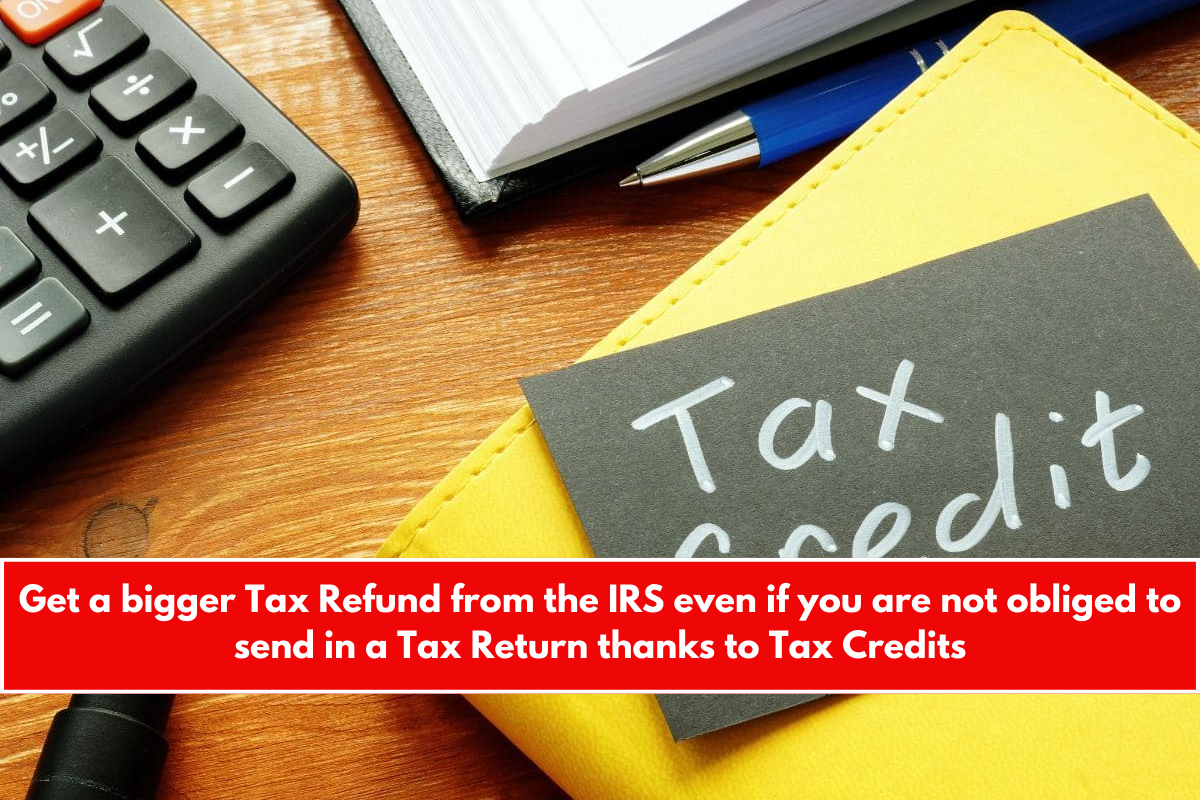Although the majority of residents in the United States are required to transmit their tax returns to the IRS, many groups are not. If this applies to you, you should be aware that the IRS may issue qualifying people tax credits that allow them to get a larger tax refund.
Having one of these tax credits may be quite beneficial, since it can result in a significant amount of money in many circumstances. Similarly, we must remember that if we are not required to file taxes, we may do it for free in most circumstances, or at least obtain free assistance in sending them in as quickly as feasible.
Without a doubt, this extra money makes a difference when planning the annual budget, since in the case of obtaining some of these tax advantages we will be able to have a larger budget. Likewise, paying the IRS taxes on time, if we have to, also makes life much easier, since it exempts us from having to pay fines and penalties.

Who can get Tax Credits from the IRS?
The reality is that there are several forms of tax credits, and we should research everything about them before applying. The best way to learn more is to use Direct File, a free program provided by the IRS to all qualifying beneficiaries. If you are qualified and reside in a state that allows you to utilize this tool (some states do not), you should review all of your potential credits.
If you are unable to utilize Direct File, this does not rule out the possibility of receiving a Tax Credit. Many families may get this kind of financial assistance even if they cannot utilize Direct File. To determine if we are 100% eligible for a Credit, we must consider a variety of factors, including our level of income.
In these cases, the best course of action is to consult with a specialist who understands how to assist us get the most tax credit possible. In any event, we must exercise extreme caution when choosing a professional, since they must be registered in the IRS registry of professionals.

















Leave a Reply